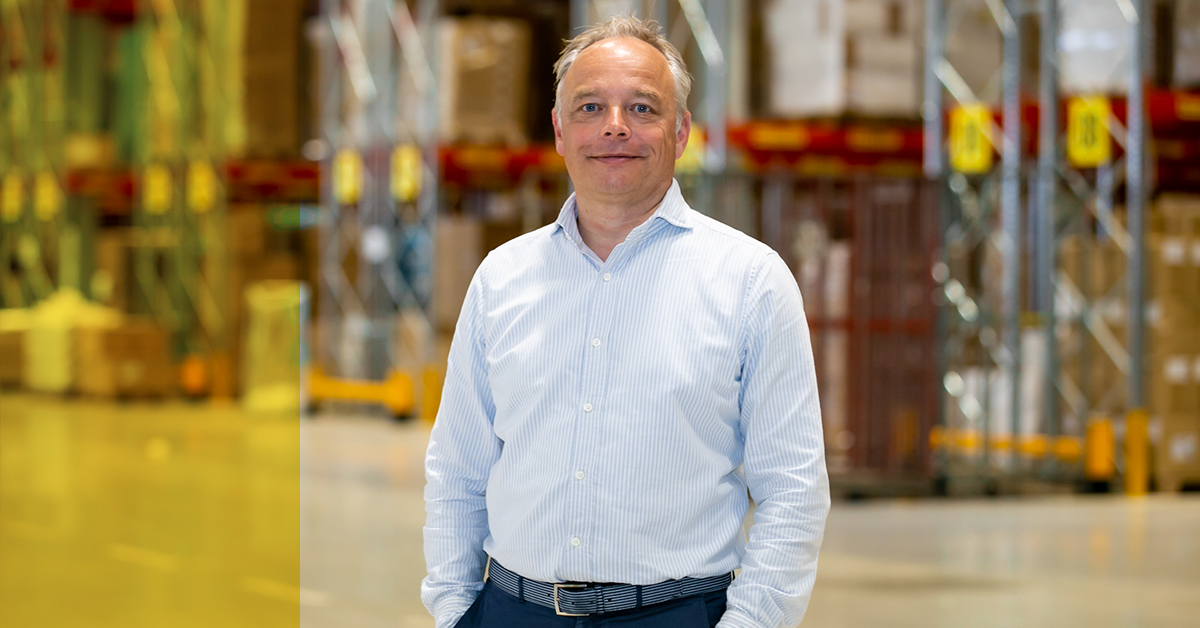Moonen Packaging from Weert is a well-known name when it comes to sustainability in the packaging industry. As a frontrunner, they are constantly innovating to meet the strict requirements and high expectations. This fall they are taking another important step by participating in the CIRCO track. In this interview, CEO Hans Houtappels explains why this program is so important to the company and what goals they want to achieve with it.

What are the biggest challenges in sustainability Moonen Packaging is currently facing?
"Sustainability is one of the biggest challenges for packaging wholesalers today," Houtappels begins. "Governments are imposing increasingly strict regulations on packaging, such as restrictions on plastic use and requirements for end-of-life processes, such as recycling."
These regulations force companies to adapt their products and processes, which is not always easy. "We have to continuously innovate to comply with these regulations," Houtappels explains. "But that is not the only challenge. Both consumers and businesses increasingly expect sustainable packaging solutions. This puts pressure on wholesalers to develop environmentally friendly products that are also competitive in price and quality."
Developing sustainable materials requires substantial investment in research and technology. "Keeping abreast of the latest innovations and integrating them effectively into our product offerings can be a challenge," Houtappels says. "And even if we offer sustainable packaging, the recycling infrastructure is not yet sufficiently developed in many areas. This means that sustainable packaging is not being processed appropriately and thus our efforts are not reaching their full potential."
What does Moonen Packaging's future look like in terms of circular business?
"The best packaging is not packaging," says Houtappels. "Corporate circularity will no longer be an option, but rather a core part of business strategy. Wholesalers who succeed in integrating circularity into their business operations will not only meet regulatory requirements, but also stand out as leaders in sustainability."
Moonen Packaging is increasingly focusing on packaging solutions specifically designed for reuse, repair or recycling, with the goal of using as little packaging material as possible. "We want to get rid of disposable products and work on packaging that goes through multiple life cycles," Houtappels explains. "Think of modular packaging that can be easily disassembled or materials that can be easily separated for recycling."
But circularity doesn't stop at the product. "It requires close cooperation between all links in the supply chain - from producers to end users," Houtappels emphasizes. "Wholesalers will play a central role in coordinating this collaboration, for example by facilitating take-back systems for used packaging and supporting recycling processes. Technology will play a crucial role here. From tracking and traceability systems to follow packaging through its life cycle, to developing fully biodegradable materials. Adding data on products is essential; the so-called LCA is becoming increasingly important to understand the footprint of packaging."
What benefits do you expect to gain by participating in the CIRCO track?
"Participation in the CIRCO track helps us further strengthen our position as a leader in circular business," Houtappels said. "This track allows us to identify specific circular opportunities within our current business model and product offerings. This includes identifying opportunities for redesigning products and services to minimize waste and make better use of raw materials."
The program provides concrete tools and methodologies to implement circular designs and processes. "We can immediately apply this knowledge in our product development, supply chain and customer interactions," Houtappels said. "This not only increases our innovation capacity but also encourages us to think out-of-the-box and develop new, sustainable solutions that strengthen our competitive position."
Another important aspect of the CIRCO track is the opportunity for networking. "We come into contact with other companies, experts and stakeholders who also focus on circularity," Houtappels explains. "This network is of great value for exchanging knowledge, establishing partnerships and finding partners for circular projects. By implementing circular principles now, we will be better prepared for future legal requirements."
In the end, it's not just about economic benefit, Houtappels emphasizes. "The CIRCO track helps us make a positive impact on the environment and society. It contributes to achieving our broader sustainability goals, such as reducing CO2 emissions and promoting a circular economy."
How could partnering with other companies within this track be valuable to your organization?
"Collaboration within the CIRCO track can be particularly valuable for Moonen Packaging," Houtappels said. "We collaborate with other companies to explore and develop circular opportunities. Through co-creation, we can, for example, design packaging that is reusable, recyclable or modular and that better meets the specific needs of our customers."
Also in the supply chain area, Houtappels sees opportunities. "We can develop new logistics solutions for taking back and reusing packaging, making the whole chain more efficient and sustainable," he explains.
Finally, the commitment to circularity and sustainability is also good for Moonen Packaging's marketing and branding. "By highlighting our leadership position, we not only create new value within our own company, but also contribute to the broader transition to a circular economy," Houtappels says. "That makes the collaboration within the CIRCO track particularly valuable for the future."